Welcome to Part 3 of our Best Folk Albums of 2018 (Read part 1 | Part 2). The purpose of this list is not just to highlight what I may consider the best but also to share with you a journey through the year. The albums I’ve chosen range from the experimental through to the traditional and in many ways reflects the breadth of what we cover on Folk Radio UK. This is just a small part of a much bigger journey but it’s one I hope you enjoy us sharing with you. The list below does not run to the end of the year, so some of our most recent reviews in December are not included – I had to stop somewhere and I wanted to get this out to you all before Christmas so be sure to check all our reviews and Featured Albums here. Also, the list does not include live albums, re-issues or compilations.
One last thing…as Editor, I always send albums that I love to our reviewers, so, as far as I’m concerned, the many albums we have reviewed over the past year have already made the cut. OK, that’s enough waffling, here are the next 20 albums in no particular order.
Listen to the accompanying Best Folk Albums of 2018 Spotify Playlist which will grow as we reveal more of this year’s highlights.
Enjoyed Folk Radio this year? Please consider supporting us by making a donation here.
Best Folk Albums of 2018
Part 1
Part 2
Part 3
Part 4
Part 5

The record ends with ‘It was all Sackcloth and Ashes’, another splendid title and another slide track, this one with a touch of reverb coming through and creating a slightly far out snake bite of an environment, with a softly humming insect field recording adding to the effect. It all brings to a close a fresh and exciting piece of work from a performer who understands the ideas behind using a solo instrument to explore textures cultures and techniques. Dancer is an absorbing, original and varied debut that demonstrates the skill and consideration this talented musician possesses.
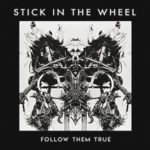
While Kearey’s vocals still define Stick in the Wheel’s sound, the other musicians contribute hugely and are given a brilliant showcase on the instrumental Abbots Bromley Horn Dance. Credit must also go to Simon Foote’s restrained percussion which subtly drives the album and gives songs like White Copper Alley and Roving Blade their wallop. Ellie Wilson also shines throughout, particularly her creepy fiddle backing on 100,000 Years. While Fran Foote’s harmonies expertly weave alongside Kearey’s, and her recorder leaps and trills to add bounce to the aforementioned horn dance. It’s customary for lazy reviewers at this time to proclaim ‘album of the year – already’ and I’m not quite lazy enough to do that to Follow Them True. Because this is undoubtedly a brilliant album and will gain great acclaim, but it’s more than just an album for 2018, this is something to treasure for many years to come.
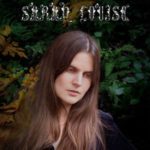
Much like any art Sarah Louise does, Deeper Woods is an album in awe of the beauty and complexity of nature but, unlike her previous solo outings, which create a soundscape from unusual guitar tunings and picking techniques, here the sonic palette is broader and the textures more intricate and ambitious. The result is at once beautiful and beguiling; a hugely listenable spiritual abstract journey through deep and ancient landscapes, where there is always much to find and delight.
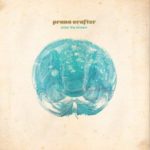
It is not easy to present an album as something that is steadfastly anti-entertainment. You have to have a very good idea of what your definition of entertainment is in the first place. But Prana Crafter has it nailed. Sol realises that entertainment is not always the same thing as enjoyment, particularly in the modern world where transience is ingrained into our cultural DNA, and in Enter The Stream he has created an album that is deeply intuitive, interpretive and built to last.
Review | Cardinal Fuzz (UK) | Sunrise Ocean Bender (US/NA) | Bandcamp
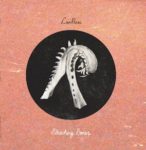
The four-part harmony in this group is wonderful and is partly a product of the experience of Sacred Harp Shape Note singing by both Ruth and Lily. Doomsday and The Female Convict come from this tradition, taken from the Shenandoah Harmony and are adapted for the four singers. They have been cleverly reworked so that what is lost in volume and choir gusto, is more than compensated for in subtlety and grace. And subtlety and grace abound in this album. There is something about voices in harmony that make you feel good – and Landless have this to perfection. There are no airs and graces, just beautiful harmonies, their sound uplifting and spiritual, even ethereal.
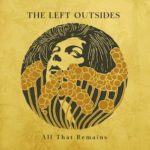
The chameleon-like demeanour of The Left Outsides’ music still retains the power to surprise and confound even those who “got” their earlier work, and the cryptic Byron Coley liner note for All That Remains gives no true indication of which way Alison Cotton and Mark Nicholas will turn or what kind of musical direction their lyrical perambulations will take as the album’s sequence unfolds in front of our orifices.Even after several plays, All That Remains remains an enigmatic record, whose resolutely beautiful meanderings are destined to haunt the listener, albeit in ways difficult to verbally assess in columns such as these; you simply have to get immersed in Mark and Alison’s visionary music – don’t leave yourself outside!
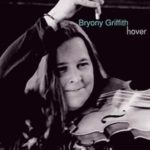
At last, we are getting English fiddlers who are thinking about their music and employing sound bowing and fingering techniques that are their own and are happy in the tradition. One of the very finest is Bryony Griffith who has made a very important CD that shows what can be done both with playing and a sensitive accompaniment (by Ian Stephenson on guitar and bass) used sparingly and carefully and never distracting the ear from the fiddle playing. There are no ‘buts’ about this album. It is the finest CD of English fiddling I have heard and I enjoyed ALL aspects of it. It is such an outstanding and major contribution to English fiddle playing that it should be heard throughout the land and considered the high water mark of England’s music.
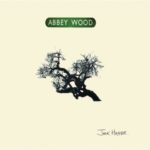
Abbey Wood is an unmitigated triumph. Clever and heartfelt, it inverts folk tropes by presenting historical narratives in extremely personal ways (as on Arandora Star, or another wartime tale, I Sent My Love To Bendigo), or by creating finely-observed urban backgrounds where the more personal songs can play out. Hayter’s haunted, haunting voice holds it all together and makes it fabulously unique. It will be a shame if we have to wait another sixteen years for the next instalment.
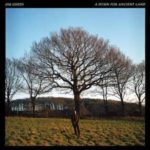
The sense of place and nature in all its busy glory, intertwined with the importance of art runs strongly through this second set from Sheffield born Jim Ghedi. With A Hymn for Ancient Land, Jim has taken big strides in his sound to create a small masterpiece, a homage of sorts to the subtleties of nature, place and space, played out with a string of instruments that rattle and sweep along together wonderfully to evoke the landscapes and stories this musician has taken in so far along the way.
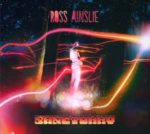
In many ways, Sanctuary sounds like the album Ross Ainslie has always wanted to make. The collaborations, especially with Zakir Hussain and Greg Lawson; embracing the creative process in a new, clearer, light. The instruction ‘no skipping tracks!’ on the CD is superfluous – you wouldn’t want to miss a single second.
Although unavoidably introspective in places, Sanctuary is by no means a cathartic album. This is no purge, it’s a celebration. The most arresting and impressive aspects of this album are not the message and the direction the music is coming from – it’s the music itself. The writing and musicianship shine in what is easily Ross Ainslie‘s most impressive album so far.
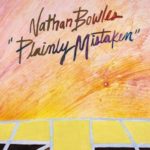
Plainly Mistaken comes at us dressed in yellows and oranges and even contains a slightly sped up, band version of Ernie Carpenter’s ‘Elk River Blues’, a song he played so beautifully and starkly on his debut A Bottle, A Buckeye set. Here the blues are lighter, with the deliberately quicker tune and fuller sound adding brightness, but don’t be fooled, there is melancholy present still beneath the surface and challenging tunes quite unlike anything Nathan Bowles has put on record before.
Bowles’s finest album yet, a confident recording skilfully crafted and well balanced and containing some of his most challenging and thought-provoking playing.

Often folk singers will perform with a certain place in mind. No other genre is quite so aware of its geographical heritage. A regional accent, a political stance, a particular choice of instrument or a way of describing a landscape: all of these can signify, with varying degrees of subtlety, a sense of location or sometimes dislocation. But there are other, equally valid, subjects for artists to tackle, and one of these is what we might call the human condition, or more specifically the nuance of human interpersonal relationship. With quiet but noteworthy ambition, the latest album by Hannah Read, her second, attempts to reconcile both of these strands. While this may not be unique, Read’s methods are all her own, and the results are fascinating. Way Out I’ll Wander is a fine achievement: listening to each of its songs is like watching the snow settle in an exquisitely crafted snow globe, revealing an image of pristine clarity.
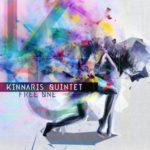
One of the most enjoyable things about this album is that the heart of Free One is firmly rooted in friends and family. While its sound is unabashedly progressive, the band’s strong roots and fierce love of traditional music is clearly expressed. This fearless exploration often takes unconventional routes but never wanders off track as this powerhouse of a band takes Irish, Scottish, and Bluegrass by the hand and spins them into an album as unique and innovative as it is technically dazzling. I have no doubt Free One is destined to take its place as one of the best debut albums of 2018.
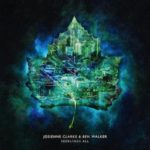
Their early work was full of frailty; now, on this album, there is a new maturity that is reflected in strength with, perhaps, more than a touch of grit. Josienne can now ask the question “Your tender heart pumping my blood round my body – and is that love?” without fearing the answer – whatever that may be. The melancholia is still there, the introspection and self-reflection survive, but the control has shifted.
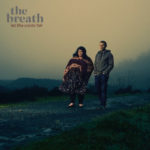
There’s an exigency in Let The Cards Fall that contrasts the comforting consideration and warmth of Carry Your Kin. It’s as if the stories and exhortations in those bewitching songs had to be channelled; to be born at their conception, divest of artistic gestation. Without that spontaneity, their very essence could be lost. The songs are still superbly crafted, the arrangements as rich and fulfilling as any of Stuart McCallum’s work. The fundamental power those songs wield, though, comes from Ríoghnach Connolly’s emphatic vocal; whether acerbic or benign. Let The Cards Fall surpasses its predecessor in its power to take you along with it. Once again, The Breath have the power to ensnare you, and you’ll be able to think of nothing else. You have been warned.
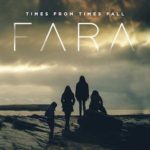
I doubt if there’s another band that produce such complex and engaging fiddle music, along with equally complex and engaging song. Life-long friendship; the rich historical, literary, and musical heritage of the Orkney Islands for inspiration; and a quartet of gifted, imaginative musicians. Fara have all the ingredients for a perfect album, and Times from Times Fall is the proof.
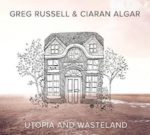
Utopia and Wasteland is an album that explores a formidable range of human emotions and political ideas, and one that flits easily between the minuscule detail and the grand statement. Above all, it is an album that identifies and engages with the problems of the modern world and insists that folk music still has an important part to play in confronting those problems. Algar and Russell have produced another compelling, wise, youthful statement; they are currently one of the most exciting duos not just in folk but in any genre.
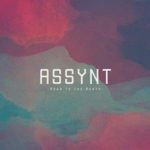
Assynt – an area in the north-west of Scotland famed for its remarkable geology, dramatic landscapes, and Scotland’s first, ground-breaking, crofter’s land buy-out. It’s also the name that the talented trio of Graham MacKenzie, David Shedden and Innes White have chosen, as they release their debut album. Refreshingly contemporary in their approach, while staying true to their Highland influences both in performance and in composition; with Road To The North, Assynt have created a debut album that marks them as one of our most impressive young bands.
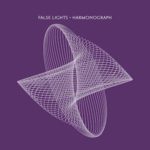
Closing track Drink Old England Dry dates back to the Napoleonic wars at the very least, but its treatment of Britain’s relationship with its European neighbours says something quite different in the current political climate. It is a timely reminder of how a good folk song can speak to us down the ages. But perhaps more important than that, it is a timeless, rowdy drinking song, superbly performed by both singers (Moray and Carter trade verses). It shows that good music, even if it carries a political message, can be enjoyed on its own terms, in a spirit of collaboration and celebration. And that is what the immense appeal of this album boils down to in the end. The harmonograph from which the album gets its name is an instrument that creates apparently complex geometric shapes using two balanced pendulums. If we are to suppose that the pendulums represent Carter and Moray, the picture that they have created is fittingly detailed, truly collaborative, varied and often beautiful. It is the work of two modern masters in perfect harmony.

Olivia’s music is always imbued with its own special atmosphere, and the songs making up Shelter are ideal vehicles for her individual brand of vocal expressionism, whereby much emotion can be disguised within an almost casual vocal flourish. Her expertise can occasionally make her seem slightly detached from that emotion – that is, until you listen closely to the nuances she obtains from her delivery. Even more so than its predecessor, Shelter is a series of teasingly enigmatic meditations leaving a distinct feeling that for all Olivia’s emotional candour there’s a persistent – albeit attractive – unknowability giving an added depth to her increasingly masterful songwriting.
